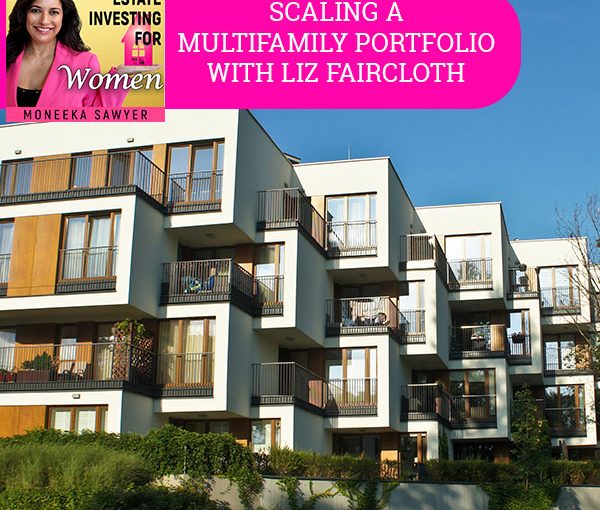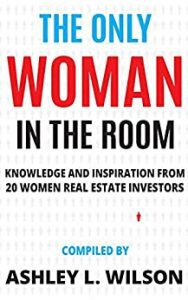Senior Living As An Real Estate Investment With Eng Taing – Real Estate For Women

There are a lot of different asset classes available for real estate investors, but there is one asset class that has yet to be tapped fully. That asset is senior living. In this episode, Moneeka Sawyer talks to the founder and CEO of Touzi Capital, Eng Taing and they discuss senior living. Eng also talks about how to keep more of your earnings using the tax code. Listen in and learn more on senior living assets in this episode.
—
Watch the episode here
Listen to the podcast here
Senior Living As An Real Estate Investment With Eng Taing
Real Estate Investing For Women
I am so excited to welcome to the show, Eng Taing, CEO and Founder of Touzi Capital and highly experienced real estate investor with $100 million in assets under management. He works hard to help people reach their full potential. He’s an economist by training from the Wharton School of Business. He also experienced leading data science and analytics at Apple, Capital One, and AT&T. He applies that experience when identifying and underwriting investment opportunities and markets. He has presented at companies like Apple, Facebook, and Amazon, where he teaches employees how to minimize their tax burden and keep and invest more of their earnings so they can achieve financial freedom.
Touzi Capital is a real estate investment company focused on investing in Kansas City who believe that your money should work for you. Touzi Capital has been investing in commercial real estate for many years and trust that this is one of the best ways to predictably build wealth through passive income. Touzi Capital focuses on high cashflow investments and providing passive income to investors by acquiring and optimizing multifamily, industrial, and senior living assets. In doing this, they want to make a real estate investing accessible for the everyday investor through a technology and data-driven platform along with our dedicated team that puts you first. Eng, welcome to the show.
What a mouthful. I don’t even know who wrote that.
Talk to us a little bit about your real estate journey. You went to Wharton Business School and then you moved into real estate. Tell me how that worked out for you.
I would love to take a little step back to my formative years and highlight why I got into real estate. It’s probably why it’s more important thing for me. I was born in a refugee camp in Thailand. My parents were Cambodian and we escaped the Khmer Rouge. I have lots of interesting stories of hiding in jungle and laws and out of hiding and keeping out. Those are some pretty terrible stuff. It’s more of my parents’ story. I did grow up in LA and I grew up poor.
I grew up with not having much, but I grow up lucky of having been growing up in America, being fortunate enough to be good at math and to have a family that put a roof over my head to not see what I didn’t have, and to have enough hunger to drive me. It’s been my biggest why and hopefully, that’s a lot of your audiences’ big why to help provide security, financial freedom in whatever form that means to your family. That’s been my biggest driver.
When I started to get good at math, I gravitated towards invest in banking because that was the thing people did in my age group. Everybody said, “Let’s go do get invest in banking. This makes a bunch of money, being a stock trader, whatever it is.” I did all that. I’m pretty good in math, understanding data patterns. What I found about myself is I did not like the volatility, the up and down, the movement, checking the market. I went to the financial crisis. When you book $4 billion losses in subprime assets, but seeing that side of things and seeing the value of these houses go down, that’s how I first got into my first real estate investment at the young age of 23.
I’m lucky enough to have the capital to deploy at the time. I remember very clearly it was $125,000 investment or purchase price, so $30,000 purchase price of investment to get $1,000 a month in net monthly income. I like that feeling of having predictable monthly income. Obviously, I’m hiding a little bit of like all the things I had to do with painting the house, remodeling it, getting tenants, and tenant issues. In general, that’s how when you come from so little you having a little bit of security gets you a lot of confidence. My story isn’t a story of getting into real estate and doing real estate. I started as someone who have always tried to do a lot of things and had a side passion for real estate and now is about to main passion of my full-time job or my business.
In general, when you come from so little, having just a little bit of security gives you a lot of confidence. Share on XIt’s always been a side hustle, and for me, probably like someone else is, you work 9:00 to 5:00 and you buy real estate. For me, having that passive income helped make better decisions. I was able to go to the Peace Corps when everyone in my cohort went to MBA. I met my wife in the Peace Corps. I was able to take bolder career decisions of asking for more, of not having a fear-based life of financial insecurity of saying, “I can’t go for this job or make this offer.”
That helped because I was buying real estate every year and having that little basis of support grow where I know that I didn’t need to have much to survive. Having that on top of everything else I was doing gave me more freedom of choice and urgency. Long story of how all these formative things helped me get into real estate as well as why I’m doing more real estate and why I love preaching the choir of real estate. It’s also very tax advantage. I’ve heard a lot of people invest in real estate and not pay taxes. I love talking about that as well.
I went out to lunch with my mother-in-law and I told her, “I’m not sure what’s going on with me,” but I am getting teary-eyed with everything that’s happening around me. It’s not everything, but things touch me so deeply. I’m not sure what’s going on with that. Hearing your story about being refugee and running to Thailand first and then escaping to the United States. It’s a very similar story of my parents who had to flee from Pakistan during the separation because they were Hindu.
They were being chased with just the clothes on their back. They ran across the border and stayed. They had these big houses in Pakistan and in India, they had 15 or 18 people living in a dirt floor shack. I know the story. I never had to live it. They came to the United States and then had me. When I hear these stories, you realize how insanely lucky we are here in the United States. What I wish is that people understood that luck and that it did not deter from their drive. How old were you when you moved to LA?
Three years old.
You probably don’t remember too much of that struggle. As little people, we still get the subconscious impact of that, but your parents brought you here and they had this drive. They wanted to create safety for you and you got to see that, and then that helped you to build that drive. Sometimes, those of us that come from immigrant families have this huge advantage of understanding what it could be like if we were not here and we didn’t have this opportunity. That touched me and I wanted to say thank you for sharing that story.
That was the purpose of sharing the story. I love to share my story. My story is my parents’ story. My story is a lot of people’s stories, of not just immigrants or refugees, but of people who don’t have much but still, I fully believe it’s a lot of mindsets and having that mindset to be grateful for what you have, for what you can have, for your health, for all the stuff. My son, Aiden, is probably going to grow very spoiled. I’m trying to figure it out. I don’t know how to not spoil him. I want him to have fun, too. I want to buy him a lot of toys, but I have pictures of me at his age chasing chickens in a camp, so different journey.

Senior Living: Having that passive income will really help you actually make better decisions.
You’re right that mindset is everything. You got a mindset from your parents and you’ve inherited and developed your own mindset. That mindset will then hopefully impact us. It will impact your children, and it impacts the world around you. Everything that we do is done through the filters of our own eyes that are affected by our own mind. If you come from a filter of gratitude, everything that you see will be of gratitude and living that life helps our children to understand it and see it. My parents, even all they went through, we’re so grateful to be here, for their children, and for their opportunities. That’s a big reason why I’m so grateful for everything, too. I totally understand what you’re saying. That mindset piece is huge. I’m sure no matter how spoiled your little one is, he will get that from you, too. He might be chasing chickens, but he might be doing it at the park.
That’s what rich people in San Francisco didn’t know, they just buy a chicken coop. It’s a sign of affluence. I got chickens and fresh grown eggs.
It has come full circle. How interesting is that? It’s not just an immigrant mindset. Thank you for emphasizing that. There are a lot of people that come from a place where they are not very privileged or they had very little, or they were in bad circumstances. Through the change of their mindset through drive, through being able to have a vision of what might be possible, they’re able to overcome that and create a life of freedom and choice. I released my TEDx Talk, which is called, Who is the Boss of You? It’s all about economic freedom to give you choice. We’re on the same way of laying about that. Let’s talk about real estate specifically. Talk to me about your favorite asset class.
I’ve gravitated towards senior living as a great asset class. For those who don’t know, senior living has many varieties to it, nursing homes, independent living, adult 55 plus, and assisted living. I was fairly in the middle of assisted living, where folks, elders, residents, and they had the greatest generation and they contribute so much to this country. They’re 85 plus. I love to invest in places where you have strong fundamentals and asset class is coming from those. That means there’ll be a lot more old people in the future. That’s the demographic shift that is known quantity in America, the silver tsunami, the growth of this aging population that will need more care, that would need more better communities and better facilities to take care of them.
Why I love this asset class, and I’ll compare this to multifamily because I do have both. It’s both business as well as real estate. Real estate has so many great intangibles, renting, we have depreciation, you have to leverage, all these things that real estate gives you. You also have a business which essentially for us is an all-inclusive resort where our rents are typically five times the amount that you would pay for a comparable apartment.
You have $500 revenue, but you have three times the costs, and that comes from making sure that you have three meals a day, and all the stuff. It’s by creating community. I love thinking about creating community and how we can give our seniors the best community as these are their retirement years. These are the years that they funded and they will stay for probably their entire lives. What I like to compare to multifamily is that typically, three years is the average length of stay. Once you get somebody in, they’re staying for a while, and because we do private pay, not Medicaid or Medicare, we know that they can afford these things three-ish years, and overall, they are income resistant.
In the pandemic, you can lose job, you might lose your income, you might be on unemployment. Our tenants are, I would like to call, recession resilient. They don’t have an income. They have the money ready. The pipe put that out from the funds. They’re using this for the last remaining years of making sure they’re in a great place. I’ve gotten deep into senior living. The reason why I got into senior living is because I love cashflow. I invest with cashflow and I’ve been investing in California until it didn’t make sense. I’m always a nimble and flexible person. I don’t want to be, “This is what I’m doing. I will only do that. I’m never going to do anything else.”
While you will learn expertise in that thing, but if the market shift, if California gets more expensive, which it had, if it gets more regulated and my control which it has, and if multifamily becomes more expensive, which it has, then I can’t get to think the cashflow that I’m used to. I’m spoiled. I like spoiling myself with double-digit cashflow, and I’ll invest this as well. I will chase after good asset classes that there’s a good moat around.
When you invest for appreciation, it's like you're planting a tree and then it becomes a big tree. Share on XWhen I started, I bought something. We’re very approachable to people, because I was like, “I didn’t have any guidance of how to buy real estate.” I said, “Let me look on this site which they didn’t have sites back then, and figure out what to buy, and do the math myself.” I was pretty good at math. I can figure it out. If more people can do what you’re doing, that means the return sounds good. It’s going to be more competitive. What you want to do is get to more uncompetitive areas where you can create a moat of competitive advantage, and senior living is a huge moat. No one’s going to go figure it out like, “I want to invest in senior living nowadays.”
Hopefully after this show, maybe some of your audience will, but it’s a great moat. Lots of people in the space, but not as many as it should be. Lots of communities that are thriving even during COVID. When I think about what I wanted to continue to do from investing overall is I just love investing in cashflow. I say cashflow risk appreciation even though all my LLS is half-appreciated. This is what happens to assets, especially when the government prints a of money.
I like it because I can get that money now and then compound it or invest in many different things. When you invest for appreciation, you’re planting a tree and then it becomes a big tree. That’s very risky if you just have gone through, but when you’re investing for cashflow, I like to think of that you’re planting tree and you got a forest. You can invest all the cashflow into many different things, and having high cashflow, double digit, meaning if you put $100,000, you get $1,000 a month. That gives you freedom to do a lot of different things.
That also gives you a lot of buffers because if you’re just investing for appreciation, I don’t want to say negative, but others have investments because they can do both. That’s money that you got to put into it every month. If you lose your job, you might not have that cashflow from that property to cover the debt. Cashflow investing for me is always a big buffer of safety. I’m always thinking of like, “How conservative, how safe can it be, and how much money can this investment make, so that it pays for itself and pays for all my other investments?”
For senior living, I love the way that you talked about that, and I talk a little bit about California is an appreciation market. Usually, you’re going to have negative cashflow, which is now everybody’s like, “It’s the bad word. Don’t do that.” When you have an appreciation market, you’re usually not going to have any cashflow, sometimes you’ll break even. If you hold for a while maybe, but there are different ways of investing and it is good to consider those different like what are your goals and to pick a strategy accordingly.
I love that you’re so clear on exactly what you were wanting. Talk to me a little bit about with senior living homes, what I have heard, because I’ve looked a little bit into it. I’m very curious about it. I’ve got a lot of elderly family members that have been in homes. I hear a lot about insurance issues, not insurance like medical insurance, but insurance as un insuring the home. It’s its own big thing that none of the other asset classes have. Have you found that to be a particularly big challenge? What do you think about that?
I think of it as an added cost, which baked into the revenue and your NOI and your OPEX expense are baked into it. It has more costs at three times costs. You have licenses you have to get. Oftentimes not medical license, but when you open anything to have a license, make sure that we’re building single-story community where typically, we have 80 to 90 people in the community. We have many different layers of liability protection. Both from having insurance, which can be costly, but speaking to the cost, to also a management company.

Senior Living: Get to more uncompetitive areas where you can create a moat of competitive advantage. Senior living is a huge moat. No one’s going to go figure it out.
We either own or a third party, which would have the liability of all the HR because it’s a people business. It’s having people and taking care of people. You want that liability off your investment. You have three entities when you’re investing in senior living versus when you have multifamily, you might just invest in your own name. You may have a real insurance. You could do an LLC, but in California, it’s $18,000 a year.
It’s a little bit more complicated, but it’s just part of once you get to know that business, you know how to handle those things.
I love complicated things. I love to figure it out and then maybe someone else won’t do it because it’s complicated. If they don’t do it, there’ll be more for me. That’s great.
There are two other questions I wanted to ask you. First of all, I do want to talk about opportunity zones and how that fits into this. I know that we’re going to talk more about that in EXTRA so we will get there. The other question is, do you invest in homes and take other people’s money to invest in them? For instance, if I wanted to invest in senior living but didn’t want to have to learn all that stuff, can I do it through you?
That’s exactly what we do. Thanks for bringing that up because I will say all these complicated things and hopefully you do something. One of the things you could do is at least know that Touzi Capital, I’m here to provide you an option to invest with us and participate in the same cashflow that I’ve been talking about. The same stuff without us having to sign a loan, without having to get an insurance, or having any liability, because you’re not even on any of the paperwork and in the liability business that we take care of everything. That’s all the headaches of hiring people and all that stuff we’re taking care of and we’re doing this at scale so that when you’re doing anything ten times, you get better. It’s something that I appreciate myself. I love to have anyone potentially participate in investing with us and growing with us.
Thank you for that. Ladies, we will be asking him how to get in touch with you with him, that’s one of those things you might want to talk to him about it. If you have an interest in senior living homes instead of learning the whole game, you can have a piece of your investment portfolio with him and make income passively. That’s a possibility, too. Talk to me a little bit about opportunity zones. We’re going to do the deep dive in EXTRA about this, but just give us a little high level, because I know that several of your properties are in opportunity zones. Is that true?
We’re developing two properties in opportunity zones. One is in Jacksonville. We’re breaking ground. I’m going to be flying over soon to the ribbon cutting ceremony, wearing these hard hats, and the state senators and congressmen around finding jobs. I love opportunity zones and what it represents. What it represents is a new law that was passed during the Trump tax cuts, where if you know the letter of the law or the tax code, you can reduce your taxable income.
What that means is you can keep more your earnings. Ladies and gentlemen, you work hard for your money, keep more your money. Use all the things that all the rich, relative people, and investor class use all day. Opportunity zones are great because for my audience, we have a lot of folks who have a lot of stocks. I come from Apple and they make a lot of money from stocks. When you sell stocks, you have to pay capital gains. In fact, we can sell almost any asset for capital gains. That capital gain is taxed, and for opt-ins, it’s the first class of investment that you can essentially say, “I’m not going to pay that, not now.” Pay that later, put that money into an opportunity zone. If you owed $100,000 of taxes on capital gains, don’t pay that, pay that later.
If you know the letter of the law or the tax code, you can reduce your taxable income, which means you can keep more of your earnings Share on XWe defer taxes all the time. That’s a great strategy. That’s all real estate. That’s what people mostly do at real estate. You need the 401(k) because you want to defer taxes in the future. You defer taxes for six years, so not too long, and then you reduce it by 10% and then you hold it for ten years. It’s quite a while for any real estate investment. All future capital gains get eliminated. The $130,000 change, you’re not doing all of that. Compare to a non-optimized investment, and I do have both. If given the same number of returns, say 12% of each annual returns, the options I would give you more than 50% more money at the end, because you would have free money going in and free money going out.
Like a rough of 401(k), I can go into detail on that, too, but if you can, don’t pay taxes. We can do that, even if you’re a W-2 employee, if you’re working hard, there are many ways if you’re investing in money, investing in opportunities and in places that the government is saying, “Invest in this place, you would get a great tax benefit,” and these places sometimes are great places to build senior living communities.
You totally piqued my interest. I would like to do a deep dive on that in EXTRA where you can talk a little bit more about how that works, because you do the high level, like I asked. I want to hear more about that exactly how that works. Ladies, we’ll be talking about that and EXTRA, so stay tuned for that. Before we go to our three Rapid-fire questions, tell everybody how they can reach you.
You can reach me at our website, TouziCapital.com and reach me at my email [email protected]. I am always happy to talk about taxes, real estate, or investing about financial freedom. It’s all the things I’m passionate about. I have YouTube videos and TikTok. I got options. I was viral. I don’t know. It’s a million views viral. I love talking about it. What I love about this space compared to everything else I’ve been doing I’ve done a lot is just talking to people. Seeing people in the journey. I’ve learned so much by talking to people. If you’re trying to do anything, this networking and relationship building is key to success.
Get in touch with him. He’s very generously offering some of his time, which not very many people do. Be respectful and kind, and if you’re interested in this topic, give him a call or send him an email. Eng, are you ready for our three Rapid-fire questions?
Yes. Let’s do it.
Give us one super tip on getting started investing in real estate.
I hate saying it depends, but what I always say is get started. Do it. I know a lot of people would think and I think too much. I think all the time. I’m a very analytic. Getting started is giving you the best way to learn. It’s like a non-answer, but if you’re short of money, find somebody who has money. If you’re short of time, find someone who has time. Partner with somebody. Those two things, time and money, will allow you to get in real estate. There are so many technologies now in space. Use Redfin, Zillow, all these great applications that I didn’t have when I started. That helps to get into it. Get started. You will fail and learn, it’s all the same. It’s going to be a great training.
Tell us one strategy on being successful in real estate.

Senior Living: Ladies, gentlemen, you work hard for your money, keep more of your money. Use all the things that all the rich and wealthy people and investor class use all day.
The big strategy that I’ve came to is to value your time. At a certain point, your time is worth more than anything. If you don’t value time, then you can create processes or decisions that is going to keep you down in the weeds of Craig Meyer, figuring out how to evict somebody or do this or that. You have to do that in the beginning. If you’re trying to be successful, that means you try and do this a lot.
Not just trying once and get lucky, you try this ten times. Think about what you want to do 5, 10 times over and figure out how to scale. That’s why for me, it’s always been about going up and scaling and knowing that. Multimillion loans are easier than $100,000 loan. I didn’t need to income for it. I need to have tax clearance. Scaling and thinking about how to do things multiple times is always a great strategy to be successful.
Scaling and systems that conserve your time. What is one daily practice you would say contributes to your personal success?
I do fasting. I’m an intimate faster, so that’s a little bit of me not having time and not eating breakfast. I used to eat a lot when I was working at a corporate job and I love having lunches and all that stuff. What I found is there are some great health benefits of fasting for me. Not for everybody. For me, it was giving me a little focus during the day to have a black cup of coffee and then getting my routine, and that helped me focus on the task at hand every day.
Nobody said that on this show. Thank you for that. Eng, this has been fabulous so far. Thank you so much for joining us for this portion of the show.
Thanks for having me.
Ladies, we’ve got more. We’re going to be talking about opportunity zones and how they can save you in taxes and capital gains and all that cool stuff. I’m super excited about that. Stay tuned for EXTRA, if you are subscribed and if you are not, but would like to be, go to RealEstateInvestingForWomenEXTRA.com. You get the first seven days for free, so you can download this one and whatever ones you want to listen to, and just check it out. It’s RealEstateInvestingForWomenEXTRA.com. For those of you that are leaving us now, thank you for joining Eng and I for this portion of the show. I look forward to seeing you next time. Until then, remember, goals without action are just streams. Get out there, take action, and create the life your heart deeply desires. I’ll see you soon. Bye.
Important Links
- Touzi Capital
- Peace Corps
- Who is the Boss of You? – YouTube
- [email protected]
- RealEstateInvestingForWomenEXTRA.com
About Eng Taing
 Eng is an experienced private fund manager with $100M assets under management. He has 12 years of private market and real estate investing experience and has focused on cash flow investing to create significant passive income. Eng is an economist by training, from the Wharton School of Business. He also has experience leading data science and analytics at Apple, Capital One and AT&T. He applies that experience when identifying and underwriting investment opportunities and markets.
Eng is an experienced private fund manager with $100M assets under management. He has 12 years of private market and real estate investing experience and has focused on cash flow investing to create significant passive income. Eng is an economist by training, from the Wharton School of Business. He also has experience leading data science and analytics at Apple, Capital One and AT&T. He applies that experience when identifying and underwriting investment opportunities and markets.
Eng is the classic immigrant story that can only happen in America. He was born in refugee camp in Thailand, where his family escaped the Khmer Rogue from Cambodia. Having grown up in Los Angeles, he pursued economics by day trading and playing Poker to pay for his tuition while attending the University of Pennsylvania. There he trained as an economist and afterwards went into Investment banking. Later he would leave the financial world to join the Peace Corps, volunteering in the Republic of Georgia–a year after the Russian invasion. There he met his wife–Jennie, who was also volunteering abroad. They now have one son, with another on the way.
Eng has presented at companies like Apple, Facebook, & Amazon where he teaches employees how to minimize their tax burden and keep and investing more of their earnings so that they can achieve financial freedom.
______________________________________
To listen to the EXTRA portion of this show go to RealEstateInvestingForWomenExtra.com
To see this program in video:
Search on Roku for Real Estate Investing 4 Women or go to this link: https://blissfulinvestor.com/biroku
On YouTube go to Real Estate Investing for Women
Moneeka Sawyer is often described as one of the most blissful people you will ever meet. She has been investing in Real Estate for over 20 years, so has been through all the different cycles of the market. Still, she has turned $10,000 into over $5,000,000, working only 5-10 hours per MONTH with very little stress.
While building her multi-million dollar business, she has traveled to over 55 countries, dances every single day, supports causes that are important to her, and spends lots of time with her husband of over 20 years.
She is the international best-selling author of the multiple award-winning books “Choose Bliss: The Power and Practice of Joy and Contentment” and “Real Estate Investing for Women: Expert Conversations to Increase Wealth and Happiness the Blissful Way.”
Moneeka has been featured on stages including Carnegie Hall and Nasdaq, radio, podcasts such as Achieve Your Goals with Hal Elrod, and TV stations including ABC, CBS, FOX, and the CW, impacting over 150 million people.
Scaling A Multifamily Portfolio With Liz Faircloth – Real Estate For Women
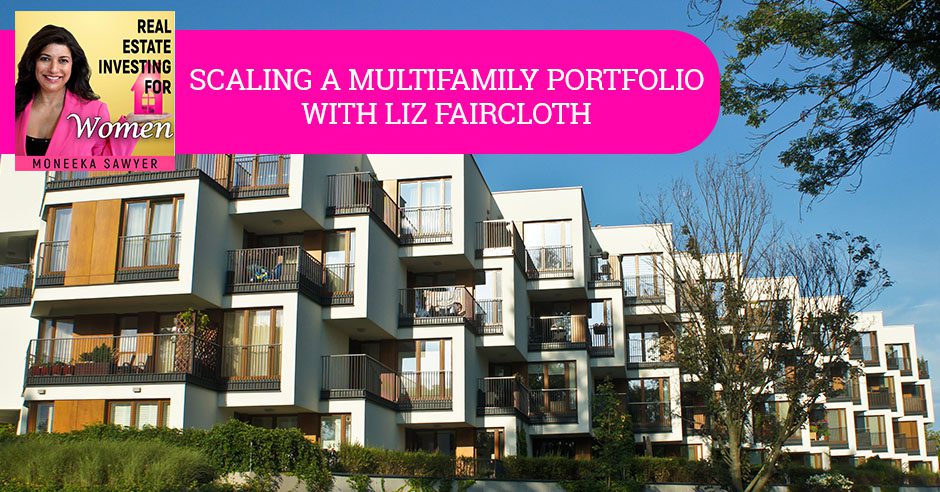
Investing in real estate is a learning process. From buying your first property to scaling a multifamily portfolio, investors learn many lessons in between. In this episode, Moneeka Sawyer sits down for a discussion with Liz Faircloth, a social worker, entrepreneur, co-founder of The DeRosa Group, and co-founder of The Real Estate Investher community. Liz shares how she got into real estate investing and talks about what she learned about investing in many types of real estate. She shares why they settled on multifamily and what you need to do to become successful in the real estate game. Tune in to learn more on what it takes for real estate investing success.
—
Watch the episode here
Listen to the podcast here
Scaling A Multifamily Portfolio With Liz Faircloth – Real Estate For Women
Real Estate Investing For Women
I am so excited to welcome to the show, Liz Faircloth. Liz Faircloth co-founded the DeRosa Group in 2005 with her husband, Matt. The DeRosa Group based in Trenton, New Jersey is an owner of commercial and residential property with a mission to transform lives through real estate. DeRosa has vast experience in bringing properties to their highest and best value, which includes repositioning single-family homes, multifamily apartment buildings, mixed-use retail and office space. The company controls close to 1,000 units of residential and commercial assets throughout the East Coast.
Liz is the Co-founder of The Real Estate InvestHER Community, a platform to empower women to live a financially free and balanced life through over 25 Meetups across the US and Canada, and an online community and membership that offers accountability and mentorship for women to take their businesses to the next level. She is the co-host of The Real Estate Investher Show, which I will be on too. They published their first book, The Only Woman in the Room: Knowledge and Inspiration from 20 Successful Real Estate Women Investors.
Liz has been interviewed for many articles and top-rated podcasts, including mine. Including being a two-time guest on the top-rated BiggerPockets Podcast and the Best Ever Show. On the personal side, Liz is an avid runner, has completed several triathlons and marathons, has two adorable children and is a New York Mets fan. Hello there, Liz.
Thank you so much for having me.
You and Andresa do so much cool stuff with the InvestHER Community. I love what you’re doing together but I haven’t really gotten to chat with you about what you’re doing. Liz, why don’t you give us a high-level version of your story of how you got interested in real estate and what your path has been?
It wasn’t a linear path. At the time, my now husband and I had started dating. Before we started dating, I was in graduate school for Social Work. I got my Master’s in Social Work. I want to open my own practice and help people. That’s been always my passion. During that time, my brother-in-law who was the only entrepreneur I ever met, grew up in a great family but middle-class family. My dad was a teacher. I was never introduced to entrepreneurs or investors, that just wasn’t in my sphere of any context growing up. Hard work ethic was there, but certainly the business piece of it, I was not familiar with or didn’t have a lot of exposure to.
Until I met my brother-in-law, who was an entrepreneur, started a business and handed me Rich Dad, Poor Dad. I’m 23 at the time and he’s like, “You have to read this.” I’m like, “All right.” I like personal growth books. I started in college reading different books and I always enjoyed them. I like learning and growing. Long story short, I read that it. My eyes were opened to this idea of passive income. I honestly never heard of that before. It’s like, “I can have money working for me, not me working for money.” It was a whole new, open-my-eye concept, which I know a lot of people have said.
What got us involved was
I then started dating my now husband. We lived about two hours from each other. Every weekend, we go to all the REIA meetings and start learning. We’re in our twenties, didn’t know anything. We didn’t have any money to invest, but we said, “Let’s give this a go.” We started taking courses. This is before Facebook Marketplace. This is literally open the newspaper, go to ads and call tired landlords. That was the million-dollar tip we got at one of the events. That’s what we did every weekend, literally knocking on doors, right outside of Philadelphia, where my husband lived and when I visited him.
One day, we got someone to say, “That’s interesting. Let me think about that.” Then we called them back and struck up a deal. A year into us taking courses and door knocking and cold calling and bootstrap whatever we could do, we struck up a deal and bought our first property. It was a duplex about $150,000. We learned everything on that property. We’d go with the people. When you buy a property, the tenants that are there may not be your tenants ongoing because there’re a new sheriff in town. The whole multifamily opened our eyes. There are only multis in this neighborhood. It wasn’t like we chose a duplex. It just so happened because it was like older homes right outside of Philadelphia. There were only duplexes and small multis. We got our start there and then we moved to New Jersey and then started our business focused on New Jersey and buying properties there. We sold that property and did 1031 into a four-unit, then that started our trajectory in New Jersey.
Over the fifteen years I’ve been doing this, we had lots of twists and turns. I wish we just focused on multi but we didn’t. We got involved a lot of different things early on. People would get distracted as we usually do. We were probably a little naïve and young. We flipped houses, we got into tax liens, we bought a commercial building, we bought raw land. Every random thing you could possibly think of, we probably have done it, until we doubled down on multifamily. Our business now is focused on multifamily. We went from a 2 duplex to a 10-unit. We grew very steadily. We didn’t go from a 2 to a 200-unit. We did, but over time.
Now, we focus on larger multis and we’re starting a fund where we’re actually investing with other operators. We’re diversifying a little bit outside of multi but more like from a funding perspective. I’m involved in that, not day-to-day, but more from like a strategic level and helping build our team out. It’s exciting to be able to invest in different sectors of real estate, not just multifamily. We do love multifamily. We have a letter of intent on a property in the Southeast, which is where we are focused on now.
Tell me a little bit more about this fund. Let’s dive a little deeper in that.
You want to make sure you're mitigating risk for yourself, but most importantly, your industries. Share on XIt’s something that we’ve talked about over the year and then COVID obviously happened. COVID happened, the pandemic and everything. You’re in California, I’m in Pennsylvania. We’re in the thick of shut downs. I know things are opening up, which is wonderful and people are getting along. All the conversations we had were like, “How’s this going to affect our buildings?” I have to say with our multifamily, any loan that came out, we took advantage of. We didn’t know how it was going to affect. We didn’t know who’s going to be able to pay. We didn’t know what’s going to happen with tenants and everything like that. Our buildings, knock on wood, the ones that were doing well are stable and have thrived during COVID.
We had a building in North Carolina that was 40% occupied. It was literally a turnaround building. It was 200 units. We got it up to 90% during COVID. Some of these buildings thrived. Other buildings that were having some issues prior to COVID continued to have some issues. While that was a stable sector for us, we’re all in on that sector. My husband and I talked a lot about as we grow our businesses, what do we want to do? We want to diversify and the importance of that, and what does that look like? The fund is an opportunity. We’ve always focused on raising money and then putting it specifically into a building, into a project.
With regards to the fund, we talk to people all the time. People are like, “This sounds like a great opportunity to pass an investor.” Then you’re like, “I don’t have a building. I don’t have anything under contract right now.” We refer them. We know a lot of people we like and respect in the business. We have no problem with that. There are a lot of good syndicators out there. We wanted to have another flavor of ice cream, if you will.
The fund will obviously be an ongoing rolling fund, and it will give investors what we’re going to actually invest in are all things that we know, and that we’ve vetted it. We’re not going to start investing in a business that we have no idea because that’s a whole other level. It’s like mitigating risk. We want to mitigate your risks. You want to make sure you’re mitigating risk for yourself, but most importantly, your investors. Hard money loans, that will be one. We’re going to start to work with maybe the hard money operators that we like and respect that we know do good business. We’re not the hard money loan lenders. They are, and we’re going to do that. Multifamily will be a piece of it. If we have a project that comes up, we’re going to almost invest in our own projects and that will be a piece of it.
Those are the two main pieces. I want to say even like self-storage and those operators, that might be another sector. They’re related to investing in real estate on some level, but it will be in a way that we are not the sole operators of everything. As we evolve, you don’t want to do everything yourself. You want to be able to do what do you do well. Once you figure that out, you have to focus on that. That’s what that looks like. We’re building out a team and that’s been in the making for some time, but that’s the goal.
I’m fascinated by that idea because I feel like, for me too, there’s something that I do really well. I do executive homes in the Silicon Valley. I’ve got my entire systems. It’s all built out. It runs itself. I don’t worry too much about it. I was telling you before that I’m taking all of my May off for my birth month because that’s where my birthday is. We’re traveling to Hawaii and I’m going to a spa in Palm Springs with my sister. We had our vaccinations, we’re all taken care of, we’re doing our tests, everything’s good. We’ve decided that it’s time to celebrate. That lifestyle is fantastic. I’m not particularly interested in working significantly more. I do get boards, we have construction projects, we have some other stuff going on so that my entrepreneurial mind doesn’t slow down or get bored.

Multifamily Portfolio: What commercial brokers care about is if you’ve closed deals, they do not want to work with people who are going to get to the finish line and not be able to pull the money together because they want their commission.
What is happening is I found several different syndicators doing different things. I’ve invested in storage, multifamily and a variety of different things. I often wondered because each time that I invest, and I don’t know how this is going to work for you guys, but every single time I invest, it’s a minimum of $100,000. That’s great for us because we have that money, we’re looking to retire, we’re moving that way, but not everybody who’s reading this has access to $100,000 for this and $100,000 for that. They want to be able to diversify without spending that much money. What does that fund look like for you? Is there going to be a minimum investment? Have you worked that out?
I think we’re still working that out. One of the key team members that we knew that we needed, it’s not how but who. You can start to build out different businesses, you can’t know everything. I don’t want to know everything quite honestly, that just hurts my brain a little bit to know everything. We’re women, we want to know everything. Anyway, one of the people that is a key principle in this endeavor is a fund manager from Wall Street who has run funds. As we’ve talked to him, I think the minimums are going to, I’m not sure exactly. I will say though, one organization we’ve started working with is called Republic. Basically, what they do is they in essence have a similar type of approach, in that people can invest $10,000, even down to $1,000. Don’t quote me on that, but I’m not familiar.
What’s fascinating though for our last indication was a 336-unit apartment building. Our minimum was $50,000 on that project. Not everyone has that but they want to invest in real estate. We found this company and what they’re doing is they’re the investor in that project, but they’re the ones going out to the accredited investors to then say okay to all pooling all this money together. Then they are the investor in that project with us. They’re all pooled in this together in this company called Republic, then Republic is ultimately the investor, if that makes sense.
It was cool because that was the first time we had ever done that. If you think about it, we have a 336-unit apartment complex. We had close to 80 investors. It’s a lot of people, even with a minimum of $50,000. We had some people who put $500,000 and some people put $100,000, any amount. There’s a lot of money. I’m the cheapest person, I’d be putting $1,000 at anything. That’s me. I know, I get it. We were really pleased to see that. It’s a neat approach. I think that’s the future to be honest because I love that concept and I was really intrigued by it. As we do other deals, we’re going to be working with them. I’m not sure the relationship exactly how that’s going to play out in the fund, but that was just a neat example for our last indication that gave everyone the opportunity.
Are they more of crowdfunders or are they syndicators? Do you have any idea on their structure?
I’m not too sure which level they are. I just heard about it conceptually and was intrigued. I know that they’ve been around and they’re not just at the start of their company. There are a lot of different pieces around it to ensure how you do it. Some funds are accredited, not accredited, and all that plays as well. There’s a lot of legal stuff, a lot of money to see attorneys and all that stuff. Because it’s a project, you can’t solicit. It’s illegal to do that. There are other projects from friends and family. I know that with this particular project it’s because we only accepted accredited. It’s a neat approach and I’m happy to get more info.
Don't get distracted, focus on a niche and go all in on one thing. Share on XLet’s put our heads together. I’d love to hear a little bit more about that. I’m always looking for ways when I get phone calls from my ladies, when they say, “I’ve only got this much.” What can we do with that to benefit them in the biggest way? That would be amazing. Another topic that I’m getting a lot from my ladies is this idea of out-of-state investing. Especially here in California, there are a lot of markets where people feel like, “I can’t really invest in my backyard,” and they’re scared to go out-of-state. I know that you do a lot of multifamily out-of-state, so let’s talk a little bit about that, your perspective and how to look for projects and stuff like that.
For our first seven years, we invested locally. We had a rule where we don’t invest more than 30 minutes away. We did a team. We did a leasing agent. We had our bookkeeper who did all the accounting. We have a tenant relations person. We had a maintenance person. We had four people on our staff besides me and my husband, helping us manage our local properties. We bought a property in Philadelphia which was an eighteen-unit and that was 35 minutes, so we went, “We could still do it.” Then the market shifted. I’m in the Northeast, and New Jersey is not the most favorable state on taxes in this country. Even in Philadelphia, the projects that we were looking at were getting outbid, it was getting more expensive. We raise money, we work with investors. The returns are important to ensure that we’re going to get into the right projects. We’re not just parking millions of dollars from a relative.
We’re constantly looking at how we’re going to get into the right area for our investing goals and our investors. A broker had brought the same broker and that’s the first thing I’d say as a good tip is start building relationships with commercial brokers. Sometimes it’s tough, especially now. Think about a hot market, everyone’s calling commercial brokers saying, “I invest in multifamily, do you have anything for me?” “Yeah, you and 90 million other people.” You’ve got to differentiate, keep that in mind too.
We had closed that eighteen-unit with the same broker who called us about a property in Lancaster, Pennsylvania, which is about an hour and a half from where we were living at the time. He said, “Are you interested?” We’re like, “Cool, like an hour and a half. We’re not going to send our leasing agent there. We’re not sending our maintenance person there. We need to look into property management companies.”
After vetting the deal, and that’s a great story that ended up itself. The first domino always is a good property management company. You’re going to need that. Some people successfully invest in properties and they self-manage the properties. I’ve heard of it. I know a lot of women who do it successfully. We knew at a 49-unit, that wasn’t going to be our best strategy. We knew it was going to be important to have a good and local property management company. Why I say that’s a great person to have on your team? Say you’re sourcing an area in Alabama or wherever you’re sourcing deals. Before even looking for a property, start getting to know the property management companies there because that’s going to follow. If you cannot find a property management company in a geographical area, that might be a sign for a lot of reasons that something is off.
Even with Airbnb, which is very hot, vacation rentals and luxury vacation rentals, whatever the people are interested in. If it’s a hot area, there are people managing in that hot area, and that’s a great source and a great team member to start to talk to. Number one, they know the area. What streets are good? Which streets aren’t good? What areas are up and coming? What areas are too hot and expensive? Because we know that’s the case. We’ll wait in an exuberant way now. Everywhere is like, “Hold on, what do you want?”

Multifamily Portfolio: The idea of the diversity of jobs is even more important than job growth, they’re both important.
I called up my way to Target. You’re a real estate investor, you never turn it off. I saw a sign that said ‘For Sale’ and it had a handwritten phone number. I’m like, “That’s a good sign.” Great area, Bucks County, where I live and I’m like, “That’s an interesting area.” I texted the person, guy, gal, I don’t know who it is. I said, “How much is the lot and what’s the size? Is it with sewer?” all the things you ask. We’ve done a bit of new construction a lot of times but we could probably pull it off. “$250,000.” I don’t even know if you’d get $500,000 for the property. That’s just for the lot. People are nutty with their prices right now.
Going back to out-of-state, I think property management companies are helpful to have on your team as an initial team member. What commercial brokers care about is if you’ve closed deals. They do not want to work with people who are going to get to the finish line and not be able to pull the money together because they want their commission. That’s what they care about. Beyond everything else you want to talk about with them, they care about if you’ve closed with them or with anyone. If you or someone on your core team has closed deals that you’re looking for. If you’re looking at a 100-unit, you better have someone that you’re bringing to the table that’s like, “This is the kind of team we have, the kind of team we’ve done and this is what we’ve closed.” That is what they’re thinking right now when you call them.
This broker brought us this project and we started to talk to property management companies in the area and vet the area. What really helped, and I always say this, if you have somebody in your family or in your network who lives in the area is really helpful. They don’t need to have a degree in real estate. They don’t have to have ten years in investing. If you have some boots on the ground and feet on the street, people that aren’t just property management because remember, property management company is a vendor.
We always like to offer our property manager company’s potential ownership in the building. Every time we buy a building, we say, “We’re syndicating this, would you like to own part of it as well?” It’s not the best sign if they’re like, “No.” Even if they put $25,000, maybe they think that’s like chump change. Most of all the property management companies we’ve worked with have invested in our deals and that’s a good sign as skin in the game, so to speak.
I would say the second thing is to start to look at, “Is this an up-and-coming area? Do I know anyone in my network that can help me? Is there a reason to go there? Do I want to go there?” If you’re going to invest in an area, those are questions to ask, “If I have to now get on a plane, is that on the way to my aunt or my parents? Is this an area that my kid can go to college for the next four years?” Make it make sense. Versus an area that literally you know no one. That can work but if you can blend a few things in there and it is an up-and-coming area, you’re going to want somebody that’s 10, 15 minutes from the property, whether it’s a realtor, whether you have to pay them hourly. If you can’t get there, someone needs to get there because fires happen, things happen.
We have a cousin in this area, Lancaster. When we’re looking at it, we’re like, “What do you think?” He’s an investor, which was even better. He was able to be our boots on the ground. He’s part of our general partnership. We had a fire there years ago. We want to make sure everyone’s okay. We also want to see what’s going on. In an hour and a half, the fire is probably going to throw a little more damage than ten minutes.
Don't give up. Your mistakes are going to propel you forward and you're going to learn and grow from them. Share on XA couple of things that I want to highlight is that people think that you hear about an amazing market and you should go invest in there. I remember in the mid-2000s, everybody was in Henderson, Nevada, right outside of Las Vegas. I had close friends who all invested. There was also Florida, there was also Chicago. Those were some big hubs where they were really marketing to investors from out of state, especially California. Californians had a bunch of equity and it wasn’t working for us. Everybody could get loans by just stating things.
There were these pockets that were trending. People were making money hand over fist. For me, I always play the longer trend. I don’t play the short-term trends. I would admit, I would probably be a lot richer if I got that right more often, but there are many people that get that wrong. Part of it is that they didn’t do some of the things that you talked about. It wasn’t a place that I would ever want to visit. It wasn’t a place on the way to anything. Las Vegas, it is. Chicago, it is. Florida, it is. A lot of people didn’t have that mentality of, “Would I want to go there? Would I vacation there? Would I want to live there? Would I want my kids to go to college there? Is there any reason for me to go there?” Even in Henderson, it’s not like people were like, “I’d like to have something in Henderson because I like to go to Las Vegas.” No, it was, “I’m investing in Henderson because everybody else is investing in Henderson.”
I love how you talk about this, especially in your first few deals, I think this is hugely important is as you’re getting to know what this is like. The very first time you step out of state, you don’t want to be in a market that you completely don’t understand, that you just get a bunch of numbers from someone that’s a vendor. They’re interested in selling these properties. They’re not going to lie to you, but they’re definitely going to paint a pretty picture.
We had a friend that moved to Henderson and we went to visit them one time when we went on a trip to Las Vegas. He was like, “There are all these crazy investors coming in here.” All around town, people were like, “This bubble is going to blow,” because there weren’t as many people in the restaurants anymore. There were things that were closing down. We’re like, “How is it possible that all this expansion is happening but the actual economy is shrinking?” There’s no way to have known that if we hadn’t had this conversation with our friends that had just moved there. There’s all this hype about Henderson, but they just closed down the local Whole Foods or whatever market it was.
I love what you talk about is we don’t have to have boots on the ground all the time, every time. Eventually you do develop a skill in getting to know markets or you focus on certain markets. Especially in those first few deals that you’re going out, that is all such good advice, Liz. Make sure that it’s someplace you would want to go. It’s like basic, intuitive, common sense stuff that we don’t think about because we get whisked away by the excitement of what’s possible. Those basic stuff, “Would I like to go there? Is there anything there I appreciate? Do I have someone that’s relatively close by, maybe within a half hour?” Even if they’re not going to be boots on the ground, just have the conversation once in a while. See how things are going in that market.
Thank you so much for that because normally people are like, “You need to look at the colleges, the employers or the average income rate.” Yes, you do need to do all those things, but it’s not the end of the story. Especially when you’re starting, it’s not necessarily going to give you the comfort that you need to actually get out there and do it. Here’s the thing, nothing happens for you until you take action. If it’s just the numbers and that’s not inspiring you to take action, then nothing is happening for you.

Multifamily Portfolio: Everyone gets stopped after they lose money and something bad happens. But don’t give up.
Many people do get caught up and there are many important numbers as you’re analyzing markets and analyzing deals. Even just the idea of what COVID taught is the importance of diversity of jobs. Are there different jobs that people can actually be employed by? They’re all in on the tech, all in on the government or all in on whatever industry. The idea of diversity of jobs is to me, even more important than job growth, they’re both important. To know that people can get different jobs, there are jobs that can do positive things. There are many markets that don’t have that. Even high-priced areas don’t have that. We probably invest more in the workforce housing, more up and coming areas, not areas that are on any hot market list. Those are the too expensive areas. We’re like, “We don’t want to invest in an area that’s on any list.”
I love that, it’s much more practical advice. My ladies here have a lot of good advice from very smart people. Sometimes, we just got to ground it. This is how you make yourself comfortable with that. Ask yourself some real common-sense questions because so much of building a real estate business is common sense. There’s a lot of fancy languaging. There are a lot of people that say things that sound smart, but in the end, it’s a common-sense business. Thank you so much for grounding that for us. It was helpful. We are going to do EXTRA. We’re going to be talking more about building your team, finding partners when you’re in state or out of state. She likes to say, “Who’s on the bus?” and then team building with all those people that are on the bus. I love that picture because you’re all going out on a field trip and you’re all on this bus. Where are you going to go? How are you going to get there? Is it going to be fun? Is it going to be profitable? We’re going to talk about that with Liz in EXTRA. We have that to look forward to. Before we move to our three rapid-fire questions, Liz, could you tell everybody how they can get in touch with you?
In terms of some of the active multifamily projects which are fun to learn more about some of the day-to-day real estate projects, you can go over to my husband’s nice business called DeRosa Group, DeRosaGroup.com. My husband spent a lot of teaching as well. We both love teaching and helping, so you’ll see a lot of YouTube content and things of that sort from him. In terms of women who are interested in getting more support from women and getting connected, check us out TheRealEstateInvesther.com. From there, you can learn all about our Meetups that are across the country, and our Facebook community and membership, and things we’ve got going on with helping women. You can check us out there.
Thank you for that. Liz, tell us one super tip on getting started investing in real estate.
Don’t get distracted, focus on a niche and go all in on one thing.
What’s one strategy to be successful as a real estate investor?
Don’t give up. You’re going to lose money. I hope you don’t lose money, but you may lose money like many of us. Fifteen years, I can tell you a lot of interesting stories. You’ve had money like a Bernie Madoff situation where literally hundreds of thousands of dollars were stolen from us. We don’t give up. That makes anyone that successful in any line of business or anything in life. Don’t give up. Know that your mistakes are going to make you propel you forward, and you’re going to learn from it and you’ll grow from it. If you don’t have that attitude, then everyone gets stopped after they lose money and something bad happens. Don’t give up. That’s the key.
What would you say is one daily practice that you do that contributes to your personal success?
Something that I’ve always done and then go back and forth and don’t really do it consistently is I do a daily prayer. I read a little spiritual prayer. I think about it. I’ve been doing ten-minute meditations. I’d like to increase that eventually. For me, it’s been super helpful. I focus on whatever I learned in that prayer. I focus on that in my meditation. If I miss a day, it’s rare, but I have maybe missed 1 or 2 days for four months, but every day I usually get that in.
My meditation practice gently worked its way into my life to where I don’t even think about it. It started to just happen. I missed three days and my husband and I were on edge. I lost my temper at a restaurant. I didn’t yell at anybody but I didn’t have the patience to wait. Nobody saw it but I felt it like, “What is going on with me? Who is this person?” My husband was like, “Are you really stressed out?” I was like, “I think I haven’t been meditating. I haven’t been taking Moneeka time.” I have been taking Moneeka time. I got a pedicure. I still do, but that piece that starts my day has been so important. I’m glad you mentioned that.
You have to practice it. It’s like going to the gym. You can’t do it once and you’re good.
I always say in all of our Bliss practices, you can’t just brush your teeth once in your lifetime and hope your teeth are going to be good. You’ve got to brush it every day. You’ve got to keep doing those little things. Liz, as always, I’ve loved our conversation. Thank you for everything you’ve shared in the show.
Thank you so much for having me. This was amazing. I hope I was helpful and gave some content that your audience will help them.
Ladies, Liz and I have more to talk about. We’re going to be talking about building teams and who’s on the bus, all of that really good stuff. Stay tuned for the EXTRA. If you are not subscribed, go to RealEstateForWomenEXTRA.com, and you get the first seven days for free. Check it out. See if you love it. If you don’t, that’s totally fine, but do check it out. For those of you that are leaving, Liz and I now thank you so much for joining us for this portion of the show. I look forward to seeing you next time. Until then, remember, goals without action are just dreams. Get out there, take action and create the life your heart deeply desires. I’ll see you soon. Bye.
Important Links
- DeRosa Group
- The Real Estate InvestHER Community
- The Real Estate Investher Show
- The Only Woman in the Room: Knowledge and Inspiration from 20 Successful Real Estate Women Investors
- BiggerPockets Podcast – Liz Faircloth episode
- Best Ever Show – Liz Faircloth episode
- Rich Dad, Poor Dad
- TheRealEstateInvesther.com
- Facebook community – The Real Estate InvestHer
- RealEstateForWomenEXTRA.com
About Liz Faircloth
 I’m Liz. I was born and raised in a middle-class family in New Jersey where my home was filled with love but going out to dinner was a big deal. From an early age, I have always wanted to serve others and even went to a graduate school program to become a social worker.
I’m Liz. I was born and raised in a middle-class family in New Jersey where my home was filled with love but going out to dinner was a big deal. From an early age, I have always wanted to serve others and even went to a graduate school program to become a social worker.
While studying to become a social worker, my brother in law who was the only entrepreneur I had ever met, handed me Rich Dad Poor Dad. This changed the trajectory of my life forever. Over the next couple of years, I started learning as much as I could. After a year of taking courses and hundreds of attempts to get an offer accepted, my boyfriend at the time (now husband) purchased our first investment property a duplex with none of our own money since we did not even have the money.
I started in my 20s not knowing anything about investing, business, and no money to invest. Now, 16 years later, our team owns and manages millions of dollars of real estate. What most people don’t know is that this evolution came with a lot of lows, loss, heartache, and challenges.
As someone who was not handed anything I have today, I have learned a ton of lessons from not giving up to managing the balancing act of life as a woman. I am constantly working at balancing all the priorities of my life from being a mom of young children to a wife & biz partner with my husband to taking care of myself. It has not been easy so that is why we created our InvestHER community.
Love the show? Subscribe, rate, review, and share!
Join the Real Estate Investing for Women Community today:
______________________________________
To listen to the EXTRA portion of this show go to RealEstateInvestingForWomenExtra.com
To see this program in video:
Search on Roku for Real Estate Investing 4 Women or go to this link: https://blissfulinvestor.com/biroku
On YouTube go to Real Estate Investing for Women
Moneeka Sawyer is often described as one of the most blissful people you will ever meet. She has been investing in Real Estate for over 20 years, so has been through all the different cycles of the market. Still, she has turned $10,000 into over $5,000,000, working only 5-10 hours per MONTH with very little stress.
While building her multi-million dollar business, she has traveled to over 55 countries, dances every single day, supports causes that are important to her, and spends lots of time with her husband of over 20 years.
She is the international best-selling author of the multiple award-winning books “Choose Bliss: The Power and Practice of Joy and Contentment” and “Real Estate Investing for Women: Expert Conversations to Increase Wealth and Happiness the Blissful Way.”
Moneeka has been featured on stages including Carnegie Hall and Nasdaq, radio, podcasts such as Achieve Your Goals with Hal Elrod, and TV stations including ABC, CBS, FOX, and the CW, impacting over 150 million people.
Growing Your Wealth With The Investor Mindset With Steven Pesavento – Real Estate For Women
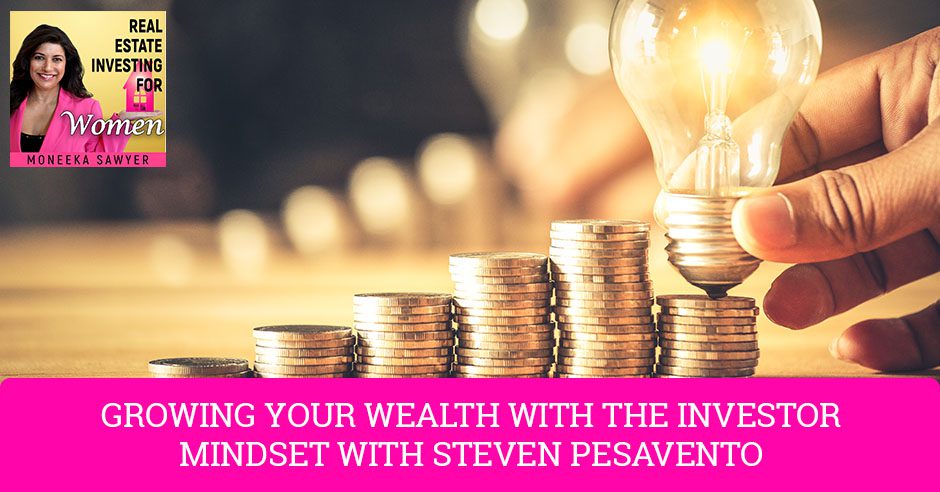
Surround yourself with people who align with your values. Moneeka Sawyer’s guest in this episode is Steven Pesavento, President of VonFinch and host of the Inventor Mindset Podcast. Steven talks with Moneeka about how he turned from failure at 27 to flipping 200 houses in less than three years. His secret? He changed his mindset from not valuing coaches, to going out of his way to connect with them. Be around mentors who’ve been where you want to go. With their guidance, you’ll skyrocket your way to unprecedented success. Tune in!
—
Watch the episode here
Listen to the podcast here
Growing Your Wealth With The Investor Mindset With Steven Pesavento
Real Estate Investing For Women
I am so excited to welcome to the show, Steven Pesavento. Steven is a real estate entrepreneur and expert relationship direct response marketer. He’s a Managing Partner of VonFinch Capital and investing full-time since 2016. He’s completed over 200 transactions, renovated nearly 100 houses, and transacted over $26 million in residential investment real estate. Steven’s investors have entrusted him with over $10 million of investor capital, delivering solid, consistent returns. Steven is the host of the top-rated show, The Investor Mindset and he interviews some of the smartest investing minds and authors like Chris Voss from Never Split The Difference, Jay Papasan from The ONE Thing and we had his wife on the show, which was amazing, then also Joe Fairless from Best Ever Podcast and many others.
—
Steven, welcome to the show.
I’m so excited to be here. I love your energy. That’s what energy everybody should be bringing to their life.
We talk a lot about this on the show and you are a mindset guy so we will cover this too but our attitude is everything in our businesses, our lives and for our bliss. Wouldn’t you agree?
I agree absolutely.
Surround yourself with mentors who’ve been where you want to be. Share on XYou’ve got this awesome story. I can’t wait to know about it where you went basically from a failure at 27 to 200 flips in less than three years. Could you tell us your story at a high level?
When I’ve got started in real estate, I had some of the same feelings a lot of you feel and almost every new operator has gone through this at some point. You have that desire. You want real estate to be your thing. You are excited about what it can do for you. The financial freedom bug has bitten you but there’s something that seemed to hold me back from taking action. I started my career back in management consulting and I thought that I had it all figured out.
I thought that if I go this traditional path, go to university, graduated from a great school and get a killer job, I was making more money than I ever could have imagined and making more money than my parents growing up. As a kid, we didn’t grow up with a lot. There was one subject in our house that always caused pain and that came down to money. Always the focus was, how I can create more? How can I make sure that I don’t ever have to feel those feelings? I’ve got into the career and it didn’t solve all the problems.
I had the money but I didn’t have the answers. I started going on this journey where I’ve finally got down, ready to get started in real estate and a lot of false starts but the beliefs were what was really holding me back. It was that belief that I didn’t have enough experience, the family connections, the money and know people with lots of money. All these things were a wall in front of me wanting to get started. I can remember when I finally made that decision to move forward and dive in. I was sitting on the couch of my girlfriend’s home at that time, jumping up and I said, “I’m doing this, not another day, not another minute. I am going to make real estate my career.” That day, I decided that I was going to push all in. That’s my mentality. It’s 100% once I decide something, it’s done.
From there forward, I was able to scale up to over 200 houses in about two and a half years flipping in two different states. Out-of-state, I was able to do this all by building great systems, hiring a great team and most importantly, getting surrounded by mentors who had already been down the path. I’ve got some stories that I can share about exactly how I went about doing that but that was the key to my success. I made a decision after I had got clear on what I wanted, and then I found a way to get surrounded by other people who had already done it.
I talk a lot about finding a mentor in this show. How did you find your mentors? There are a lot of people out there talking about this stuff.

Investor Mindset: Talk to somebody who can help you gain clarity so you know what to do next.
There are a lot of people who are real estate professionals. They maybe flip some houses, buying multifamily or some rentals. There are a lot of folks that you can look to but what you need to start and where I always advise all my clients, friends and audience. I’m the host of The Investor Mindset show. We dive into a lot of these types of conversations about thoughts and how those thoughts lead into action but it’s about figuring out what do you want first. What do you want and why is that important to you? It comes to the who and then once what that is, then you go and find somebody who already has been down that path and already done it.
For me, I found a local real estate investor event. It was the first action that I took. It was the same day that I made this decision. It’s what I recommend everyone else do. When they make a decision, they should immediately take some action. I committed myself to go to this event. One of the speakers happened to be a very well-experienced real estate flipper. I researched this person in depth. I listened to every show I could find. I tried to ask myself, “How could I be of value to this person? How could I make a difference in this person’s life? What skills, knowledge or frankly, the fact that I have time, how could I make an impact?” I thought of this plan, went to the event, listened, asked questions, engaged during the conversation, and then waited until everyone else had left and the conversations had died down, as all these people were going to go and talk to the speaker, that’s what often happens.
I made a pitch and my pitch was, “I will do this for you and build you this $10,000 to $15,000 website for free. All I’m asking is if I can be a part of your inner circle and if I might be able to follow you around at a property or ask you some questions from time to time.” Before I could even finish asking or making the offer, her hand was out in front, ready to shake it to lock it in it. It was because I found a way to be of value to her, to be able to help make her life easier and better. I thought to myself, “What are those skills that I could do?’
The reason that I went this route was that at that time, I had a lot more time than I did money. I had a lot of beliefs about coaching, training and spending money on these things. I didn’t know that that was only limiting my success. Fast forward, I ended up joining a Mastermind group that I was able to get surrounded by 50 other people who all had the same dream, many of who already were on that path and a few who already had that success. By being a part of that community, I was able to see the exact formula, the blueprint about how my business could look. That gave me the belief because I said, “If they can do it, then I can definitely do it.” I modeled my business that first year. We had flipped over 75 houses.
That’s another one of those things like there are a million masterminds. I probably get an invitation to a mastermind every single day. How did you pick the mastermind? Did you research everybody that was in it or what did you do?
The key to getting a part of a community is you have to one, it’s a little bit of luck but two, it’s mostly about showing up. I had committed myself to go to this event. It was the first conference that I have ever gone to. I ended up going to this conference and it was full of a ton of other people from the community who are also on that same path. There are many people who are friends of mine now because I met them at that first real estate conference. I had gone to many events and meetups. I had done plenty of free training but spending $1,000 to go to this conference for three days was a huge thing for me. Did I have the $1,000? No. Was I committed to going and finding even more people who I could get surrounded by? The answer is, absolutely.
Be clear on who you are, what’s important to you, and what you’re good at. Share on XBy getting into this community, I ended up going to the event. I did not join a mastermind and pay for any training as a result of going to that event. What I did was I’ve got connected to some amazing people. Through those amazing people, I ended up getting my mindset shifted on paying for coaching and mentorship. It was because of a business partner of mine that I, again, was trading my time to be able to do a bunch of services within his business to get access to some more training. Through that conversation, it ended up leading to a partnership and through his lessons, I ended up realizing the value of joining this mastermind. I thought, “I’m splitting with my partner. It seems like it’s a no-brainer,” and within about 24 hours of joining that group, I had already received enough value that directly led to paying for that whole $25,000 or $30,000 ticket price.
The lesson for me was, it was costing me money to be sitting on the sidelines and not taking action, not joining something. That’s not saying, “Go, fire off,” and buy any program but it’s about getting an experience with the people who are going to be a part of that program. It’s going to a webinar and training. It’s getting on a coaching call or strategy call with somebody who can talk through and help you gain clarity so that you know this is absolutely the direction I want to go. It seems like it’s a no-brainer for me to head down this path with you than to go but to try to go through the forest on my own without a map about exactly how I’m going to get where I need to go.
Steven, I love how incredibly concise you are, articulate and how you went boom. Thank you so much for that. I want to talk to you a little bit about this whole idea of building your business based on your clients. This is how I have always built my business so I love to know your perspective on what this is, first of all, because we all see things differently, how you have done it and advice around that.
It goes back to what we were talking about. I went from this place of this mindset and this belief that I can’t spend money on coaching. Otherwise, I’m a fool. I met people who had spent $30,000 or $40,000 on some program. I had thought to myself, “Those guys got hoodwinked.” I remember I can think of a couple of couples that I had met at the events and those people are complete idiots. Now, I realize that I’m an idiot but through that process and doing lots of coaching, mentorship, different programs and personal development, all these things, I ended up learning what was most important to me. I’ve got clear on who I was, what was important to me and what I was good at. Through that process of building my business, VonFinch flipping all of those properties, managing a team of fifteen people in two different states, and spending over $1 million in marketing in about a year and a half, I learned a lot about what I loved about the business and what I wasn’t in love with.
I came to this point where I thought to myself, “Is this the business that I want to be building for the next twenty years?” The answer was no. If you do the old rocking chair task or in this case, I better not be in a rocking chair at 50 but I was envisioning in this position in this place where I was going to keep running this house flipping business, this high-volume, a low-margin machine that was turning out deals and was making us great money. I realized this wasn’t where I wanted to be or what I wanted to be doing. Part of the reason was that the people that I was surrounded with weren’t in alignment with my values. I didn’t feel like I was serving on the level that I could and people weren’t open to these ideas that were so important to me.
I had been enlightened by the idea that mindset is the core of all success. When you can change your thoughts and beliefs, then you end up changing the actions you take and therefore, the outcomes that you experience in your life. Having this belief and realization, I wanted to share this with people around me. Fortunately, in my business, I was able to share that with my team, members of my mastermind community and certain clients but not all of them. As I looked at the flipping business, we are buying houses directly from homeowners, $0.60 to $0.70 on the dollar. We are doing that at volume and making a huge change in these people’s lives. We are changing their day-to-day. We are taking them out of a difficult situation and the majority of the people are absolutely thrilled but it wasn’t enough for me.

Investor Mindset: Repetition is the mother of skill and the father of learning.
What I ended up doing was I started searching for some answers. As I was sitting, after learning and being reminded about the importance of this idea of an ideal client, I started thinking through how I could change my business to start serving these clients. I came back and started taking some action because that’s what I do, making some shifts to start focusing on the investor first and making our business about serving them. I also realized there’s something that’s still in alignment. It’s not quite there.
After getting to this point where I had already made this decision that it was time for a change, I ended up stumbling upon the power of multifamily real estate and frankly, commercial investment. As I started getting more familiar with that, I saw a lot of the attributes of things that I like. The ability to scale, to have economies of scale that can happen by buying multiple units at one given time and the professionalism that is true within the industry. What ended up leading me to was this idea that this could be a great place for our business to grow into. What ended up doing it for me was that I knew that at the end of the day, I wanted to be surrounded and working with people who are like me, who were success-minded, successful, have been earning a great income and want to figure out how can they create freedom flexibility and the ability to be able to make an impact in the world. You can do that directly by investing.
If you can start getting the money that you are making from hours worked or from companies that you own working in real estate, you can start to see massive growth happen. For me, the reason why that was so critically important was that the people that I’m surrounded with are the people that I ended up becoming like. I wanted to make sure, I am surrounded by people who are working at a high level and I’m able to make a direct impact.
The second big piece for me was thinking about one-time sales versus long-term continuous relationships. I’m a guy who likes to move fast, talk and I sometimes can be curt from moment to moment but when people know me, they know that I’ve got a big heart, I’m here to support them and I do care about their success. By building these relationships, I knew that this is a business that I would be thrilled to be in for the long-term. That’s what ended up leading to the shift of deciding that this is the path we needed to go. We completely changed our business a few years ago to help be able to support and move in this direction.
When you look at your clients that you are building this business around, from my perspective, we have three different clients. We have the client that we are buying from and hopefully, you build a relationship with because many of these clients that may have several properties or maybe they want to let go of an entire portfolio. There are the people that you are buying from, you sell to and the people that you work with. What is your biggest focus or do you focus on all three? Your team is also they are your clients, too.
At the core, we are clear on what our values are and we value the idea of partnering with experts throughout everything we do. We hire, partner and bring experts internally onto our team because we know that everyone has a unique ability. It’s something that they are amazing at. It’s their superpower. I know mine. You know yours. Our team members each know theirs. By being able to partner with experts, we can leverage what we are good at while leveraging a track record of years of experience in the business so that we have been able to scale quickly to be able to make a direct impact without necessarily having to go and do everything ourselves.
Hire and partner with experts. Share on XWe believe that we are putting our clients as well as our business, which is built upon our team, in a much better place by doing this because sometimes people get stuck in this idea that I need to get everything for myself. We are not like that. We truly believe that it’s all about when we do better, we all do better. We want to make sure that our limited partners and our investors are supported that they are going to do great in these deals. We want to make sure that our operating team on the ground is going to be well-supported and their experiences are going to help support all of us to be able to go out and do the things that matter most. In our real estate business, that’s our key focus. We know that we’ve got operators, people that we are purchasing deals from on the ground and investors. Throughout that experience, there’s a track record of who we are, how we show up, what’s important to us and all of those things end up coming true. Over time, we have developed into having a reputation that stands for exactly what I have been describing.
I love the way that you talk about your operators being in their genius zone. I’m doing a construction project and we have these balconies. We’ve got all this rod iron stuff and it was hideous. I walked upstairs to look at it up close and I was like, “This is horrible.” My contractors came out and they were like, “We agree with you.” I was like, “Thank goodness.” They worked hard to find this for me. We are looking for something different and one of the things that I have noticed is that I love working with exceptional people. He is an exceptional contractor. He makes my life and my business so much better. That’s so true that who we work with, those vendors and operators, all of those people are such a key piece to running a business that’s aligned with our values, that feels good and is sustainable over time. Thank you so much for mentioning that.
It has made such a big difference. We have clients on our investor side who, from time to time, will ask, “Why don’t you operate directly? You are in the market and have a good understanding, why don’t you put the team in place?” It’s asset management. It’s this and it’s that. The answer is, “You are absolutely right. We definitely could. We can hire internally and bring on people that are on a payroll that means that we get to make more money. The thought is that if we were to do that, we would be going against what we believe in, and then second, that we truly do believe that by going and partnering with somebody who is in their genius zone, their unique ability that’s good and has that track record, we are setting ourselves up to make a lot more money as a result.” Rather than doing the things that we don’t like doing, don’t fill us up and aren’t our unique ability than we are taking away from time that could be spent growing, making an impact and difference.
This conversation has been awesome. Tell everybody how they can reach you.
The best place to reach us is, if you have liked the conversation we have had, I encourage you to go subscribe to The Investor Mindset Podcast. If you liked what we talk about, we talk about this twice a week on the show. If you feel like this has been valuable and you enjoy the mindset stuff that I encourage you, we put together a great free resource at TheInvestorMindset.com/success where we are diving into the Top 5 Success Principles of a Successful Investor and lessons that have been learned over hundreds of interviews with some very impressive people. You can grab a copy of that. If you read and like what we are talking about, you can hit me up on any of the social media platforms, shoot a little DM over, let me know that you read about this show and I would love to connect with you.
Thank you so much for that. I love free gifts, too. That sounds amazing. It was a 5 Principles of Success of a Successful Investor, right?

Investor Mindset: Meditation is a great way to catch ourselves when we have a set of beliefs that aren’t serving us.
Yes, that’s exactly it.
Thank you for that. Steven, are you ready for three rapid-fire questions?
Let’s do it.
Give us one super tip on getting started investing in real estate.
The most important tip when you are getting started real estate investing is to get clear on what you want, why you want it and then figure out who is going to help you get there. The reason why I have repeated this three times is that repetition is the mother of skill and the father of learning. If you are going to do this and you haven’t done it already, I encourage you to sit down and get clear on what is that thing that you want? What does life look like on the other side?
Once you get that clear, it’s almost a foregone conclusion that you are going to take the action to get there because you are going to be able to feel it. Sometimes people want that freedom, flexibility and independence but they don’t take this time upfront getting clear, and then you will end up where I was, where you built a successful business and made a huge impact, and then where you would say, “It’s time to pivot.” Even though I was clear on what I want, it wasn’t what I was going after. You might be able to save time by going directly to go rather than around the way. It’s just the way things go.
Maximize your time growing and making an impact. Share on XThat’s very aligned with how I teach people, too. Always start with you, build around the business around the truth of who you are and where you are headed. Talk to us a little bit about a strategy on how to be a successful real estate investor.
It starts with the exact same thing but when it comes down to investing, you want to be in a position where once you know those two things, then it’s time to take action and figure out who you are going to partner with, work with and help support you within your business. That might be employees, coaches, masterminds and training. Whatever those things are for you, you’ve got to get clear on who’s going to help get you there. That might mean going out to your network and saying, “This is what I’m doing and what I want to accomplish. Would you happen to know anyone who might be able to give me a lead or make a connection?” By going directly to people who already know, like and trust you that are in the space, they will be able to connect you to someone else and so on. It’s that power of your network that when you combine getting super crystal clear with going out and building phenomenal relationships and you bring those two pieces together, you will be in a strong position to not only scale but to do it in the right way.
What would you say is one daily practice you do personally that contributes to your success?
There’s a set of practices that I consider my one practice. Every single day I wake up with a movement, meditation, mapping and mindset. What I mean by that is I get up and I move for at least ten minutes. It’s often quite long but I will go for a great run. I get that blood flowing and I start to get my brain in a place where I’m ready to step into my day. I’m a lot smarter when I’m moving so will you? I encourage you all to do that. Meditation is a great way to slow down, especially if you are a driver type A person like me but even if you are not, we can start to see our thoughts and be able to catch ourselves when we are thinking something or we have a set of beliefs that aren’t serving us at that moment. I listen to some mindset. I love reading obviously great shows like the one you are reading, as well as other content that’s going to help enrich my brain and start putting me in the right state of mind for the day. Finally, I always start my day with a map with a very specific plan of what actions I’m going to take and what’s most important for me that day. When I do all four of these things, I end up operating and frankly, working from a much happier place.
How long does that whole process take for you normally?
It could take as little as 30 minutes or as long as an hour or hour and a half. It depends on the day but by committing just 5 minutes of breathing, 10 minutes of running, a quick 5-minute process of mapping out the day and while you are running, you can throw on a little something to motivate you to put in some of those thoughts and beliefs that you know are important. You can put that altogether or you can separate it out depending on what works best for you on each given day.

Investor Mindset: Every time you go listen to the investor mindset, take action on it.
That’s so actionable. This has been awesome, Steven. Thank you for everything that you have offered in this portion of the show.
It has been amazing being here and the biggest thing that I want you to take away from this is that in every single conversation, everything that you listen to, every time you read about the show, listen to The Investor Mindset, read a book, go to a conference or open up some course that you are diving into, there is always something that you can take away but the most important thing is that you take some action on it. Decide what’s one thing from this episode that you can do, who is one person you can reach out to, and what’s one show you can follow that’s going to end up setting you up to be in a much better place. I encourage you to figure out what that is and take that action. I look forward to being able to serve you in the future.
Ladies, you can do that. I love the way Steven does that. I made a decision and that day, I met this person. Most of us don’t act that quickly on decisions that we make. One of the biggest determining factors for success is our ability to make quick good decisions. That means you have to be aligned and intuitive about what feels right, what feels wrong and what’s settling with your gut but you have to be able to make decisions fast and take action on them. That’s a huge characteristic of successful people. Thank you so much for highlighting that.
When you hear the story of me taking action, immediately deciding, and a week later being at an event and a few days later, having a mentor and a year later having 75 flips under my belt was that it took me ten years to get to the point of making that decision. It took a long time. I read Rich Dad Poor Dad when I was 17 and I was 27 by the time that I had bought my first property as an investment. It goes to show that in that moment I decided and everything great happened from there. Why wait ten years? Why not decide now?
We do have more in EXTRA. We are going to be talking about scaling a business remotely. Ladies, you know that for me, freedom of choice and freedom of time are the biggest things that I strive for. That’s how I define blessed. I want to be able to travel. I want to be able to spend time with my aging parents. Time is my thing. Systems, processes and your team allow you to create that freedom. Since Steven is an expert in this, I asked him to please share with us how he’s done it so we are going to be doing that in EXTRA. Definitely stay tuned for EXTRA for that. It’s going to be awesome. If you are not subscribed to EXTRA, you should get subscribed for this one.
Go to RealEstateInvestingForWomenExtra.com. The first seven days are free so you can try it out. Get this EXTRA and as many as you can download. If you love it, you stay and if you don’t, no obligation but check it out. For those of you that are leaving us now, thank you so much for joining Steven and me for this portion of the show. I look forward to seeing you next time and until then, always remember goals without action are just dreams so get out there, take action and create the life your heart deeply desires. I will see you soon. Bye.
Important links
- VonFinch Capital
- The Investor Mindset
- Chris Voss – The Investor Mindset Past Episode
- Never Split The Difference
- Jay Papasan – The Investor Mindset Past Episode
- The ONE Thing
- Best Ever Podcast
- Joe Fairless – The Investor Mindset Past Episode
- Rich Dad Poor Dad
- TheInvestorMindset.com/success
About Steven Pesavento
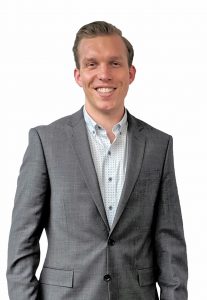 Steven Pesavento is a real estate entrepreneur and Managing Partner of VonFinch Capital. Investing full time since 2016, he’s completed over 200 transactions, renovated nearly 100 houses and transacted over $26,000,000 in residential investment real estate. Steven’s investors have entrusted him with over $11 million of investor capital, delivering solid consistent returns.
Steven Pesavento is a real estate entrepreneur and Managing Partner of VonFinch Capital. Investing full time since 2016, he’s completed over 200 transactions, renovated nearly 100 houses and transacted over $26,000,000 in residential investment real estate. Steven’s investors have entrusted him with over $11 million of investor capital, delivering solid consistent returns.
A former Management Consultant for some of the Fortune 500’s top companies, he brings his years of process improvement, marketing and sales experiences to every project. Steven graduated with honors from prestigious St. John’s University in 2011 and is active in multiple charities including working with youth teaching business with Junior Achievement.
Host of the top ranked podcast the Investor Mindset he interviews some of the smartest minds & authors like Chris Voss – Never Split The Difference, Jay Papasan – One Thing, Joe Fairless – Best Ever Podcast, Mark Manson – Subtle Art of Not Giving A F&#k and many others.
Moneeka Sawyer is often described as one of the most blissful people you will ever meet. She has been investing in Real Estate for over 20 years, so has been through all the different cycles of the market. Still, she has turned $10,000 into over $5,000,000, working only 5-10 hours per MONTH with very little stress.
While building her multi-million dollar business, she has traveled to over 55 countries, dances every single day, supports causes that are important to her, and spends lots of time with her husband of over 20 years.
She is the international best-selling author of the multiple award-winning books “Choose Bliss: The Power and Practice of Joy and Contentment” and “Real Estate Investing for Women: Expert Conversations to Increase Wealth and Happiness the Blissful Way.”
Moneeka has been featured on stages including Carnegie Hall and Nasdaq, radio, podcasts such as Achieve Your Goals with Hal Elrod, and TV stations including ABC, CBS, FOX, and the CW, impacting over 150 million people.


